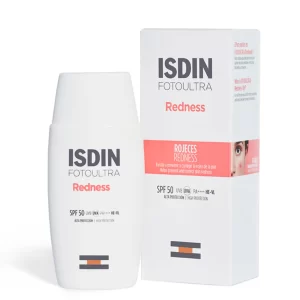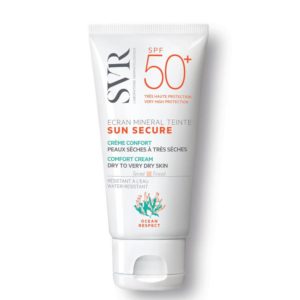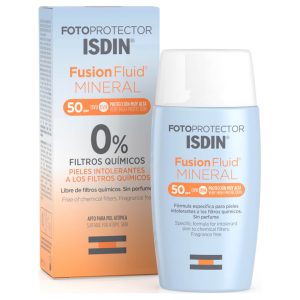This website uses cookies so that we can provide you with the best user experience possible. Cookie information is stored in your browser and performs functions such as recognising you when you return to our website and helping our team to understand which sections of the website you find most interesting and useful.

Share
How to Choose the Right Sunscreen for My Skin?
Table of Contents
When it comes to skincare, one question that often arises is, “Which sunscreen is right for my skin?”
With the increasing awareness of the harmful effects of solar radiation on the skin, choosing the right sunscreen has become paramount. In this comprehensive guide, we will explore the different types of solar radiation, how it affects the skin and accelerates aging, the various types of sunscreens available, and recommendations based on different skin types.
Let’s dive in and uncover the secrets to adequate sun protection 🙂
Understanding Solar Radiation
Solar radiation is a combination of ultraviolet rays (UV), visible light, and infrared radiation emitted by the sun. Of these, UV rays are the most damaging to the skin. There are three types of UV rays: UVA, UVB, and UVC.
UVA rays penetrate deep into the skin, causing long-term damage, premature aging, and the development of wrinkles. UVB rays primarily affect the superficial layers of the skin, leading to sunburns and an increased risk of skin cancer. UVC rays are mostly absorbed by the Earth’s atmosphere and do not reach the skin’s surface.
The Impact of Solar Radiation on the Skin
Excessive exposure to solar radiation can have detrimental effects on the skin, including:
- Premature Aging: The harmful UV rays break down collagen and elastin fibers in the skin, leading to the formation of fine lines, wrinkles, and sagging skin.
- Sunburns: UVB rays cause sunburns, which manifest as red, painful, and inflamed skin. Sunburns increase the risk of skin cancer and accelerate the aging process.
- Hyperpigmentation: Prolonged sun exposure can cause an increase in melanin production, leading to the appearance of dark spots, freckles, and uneven skin tone.
- Skin Cancer: The most severe consequence of solar radiation is the development of skin cancer. Unprotected exposure to UV rays increases the risk of melanoma and other types of skin cancer.

Different Types of Sunscreens
Sunscreens work by either absorbing or reflecting UV radiation, providing a barrier of protection for the skin. Here are the three main types of sunscreens available:
- Chemical Sunscreens: These sunscreens contain organic compounds that absorb UV radiation, converting it into heat energy. Chemical sunscreens are lightweight and usually blend well with the skin. They offer broad-spectrum protection against both UVA and UVB rays. However, some individuals may experience skin sensitivity or allergic reactions to certain chemical sunscreen ingredients.
- Physical Sunscreens: Also known as mineral sunscreens contain active ingredients such as zinc oxide or titanium dioxide. Physical sunscreens reflect UV rays off the skin’s surface, providing immediate protection upon application. They are less likely to cause skin irritation and are suitable for those with sensitive skin. Physical sunscreens are effective against both UVA and UVB rays.
- Combination Sunscreens: These sunscreens combine the benefits of chemical and physical sunscreens. They contain a combination of active ingredients that absorb and reflect UV rays. Combination sunscreens offer broad-spectrum protection and are suitable for various skin types.

Choosing the Right Sunscreen for My Skin Type
Now that we have explored the different types of sunscreens, it’s important to consider your skin type when selecting the most suitable product. Here are some recommendations:
- Dry or Sensitive Skin: Opt for physical sunscreens containing zinc oxide or titanium dioxide. Look for formulas with hydrating ingredients like aloe vera, hyaluronic acid, or ceramides to provide extra moisture and nourishment.
- Oily or Acne-Prone Skin: Look for sunscreens specifically labeled as “oil-free” or “non-comedogenic.” These formulations are designed to be lightweight and won’t clog pores or contribute to excess oil production, reducing the risk of breakouts. Some beneficial non-comedogenic ingredients in sunscreens include zinc oxide, titanium dioxide, niacinamide, and hyaluronic acid.
-
 Mesoestetic mineral fluid spf50 tinted sun protection for sensitive skin 50ml$842,76Rated 5.00 out of 5 based on 1 customer rating
Mesoestetic mineral fluid spf50 tinted sun protection for sensitive skin 50ml$842,76Rated 5.00 out of 5 based on 1 customer rating -
 La roche posay anthelios oil correct spf50 gel-cream 50ml$821,76Rated 5.00 out of 5 based on 1 customer rating
La roche posay anthelios oil correct spf50 gel-cream 50ml$821,76Rated 5.00 out of 5 based on 1 customer rating -
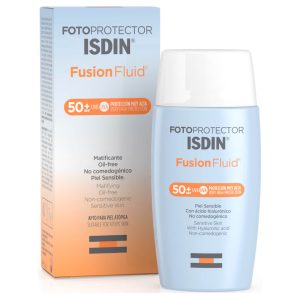 Isdin fusion fluid spf50 matifying oil-free sun protection 50ml$563,28
Isdin fusion fluid spf50 matifying oil-free sun protection 50ml$563,28
- Skins with Hyperpigmentation: Look for sunscreens that offer broad-spectrum protection against both UVA and UVB rays. UVA rays can worsen hyperpigmentation and lead to further darkening of existing spots, while UVB rays can trigger the production of melanin, resulting in more pigmentation. Choosing a broad-spectrum sunscreen helps to prevent further hyperpigmentation and maintain a more even skin tone. Also, opt for sunscreens with a high sun protection factor (SPF50+) to provide maximum protection against UVB rays. SPF30 or less is not enough. Sunscreens that are enriched with antioxidants like vitamin C, vitamin E, or green tea extract are preferred. Antioxidants help to neutralize free radicals generated by UV exposure, preventing oxidative stress and further damage to the skin.
-
 Mesoestetic melan 130 pigment control spf50 tinted sun protection for dark-spots 50ml$897,42Rated 5.00 out of 5 based on 10 customer ratings
Mesoestetic melan 130 pigment control spf50 tinted sun protection for dark-spots 50ml$897,42Rated 5.00 out of 5 based on 10 customer ratings -
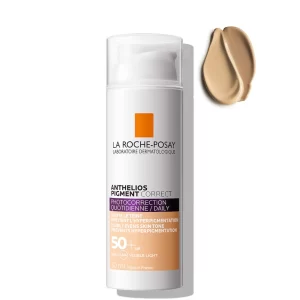 La roche posay anthelios pigment correct spf50 anti-dark spots tinted cream 50ml$819,80Rated 5.00 out of 5 based on 1 customer rating
La roche posay anthelios pigment correct spf50 anti-dark spots tinted cream 50ml$819,80Rated 5.00 out of 5 based on 1 customer rating -
 Isdin fotoultra 100 active unify depigmenting spf50 corrects dark spots 50ml$761,99Rated 1.00 out of 5 based on 1 customer rating
Isdin fotoultra 100 active unify depigmenting spf50 corrects dark spots 50ml$761,99Rated 1.00 out of 5 based on 1 customer rating
Additional factors to consider when choosing the right sunscreen
- Broad-Spectrum Protection: Ensure that the sunscreen you choose offers broad-spectrum protection, meaning it guards against both UVA and UVB rays. Look for products labeled with “broad-spectrum” or those that mention protection against UVA and UVB rays.
- Sun Protection Factor (SPF): The Sun Protection Factor (SPF) indicates the level of protection against UVB rays. Higher SPF values provide more protection. For daily use, an SPF of 30 or higher is generally recommended. However, it’s important to note that SPF only measures protection against UVB rays and not UVA rays.
- Water-Resistant Formulas: If you plan to be in the water or engage in activities that cause sweating, opt for water-resistant sunscreens. These formulations adhere better to the skin and provide protection even when exposed to water or perspiration. However, keep in mind that no sunscreen is entirely waterproof, so reapplication is necessary after swimming or heavy sweating.
- Application and Reapplication: Proper application and reapplication are crucial for effective sun protection. Apply sunscreen generously to all exposed areas of the skin at least 15 minutes before sun exposure. Reapply every two hours or more frequently if you are sweating heavily or have been in the water.
- Additional Ingredients and Features: Some sunscreens come with added benefits such as antioxidants, anti-aging ingredients, or tinted formulations. Antioxidants like vitamin C and vitamin E help neutralize free radicals generated by UV exposure. Tinted sunscreens can provide additional coverage and even out skin tone.
- Consult a Dermatologist: If you have specific concerns or unique skin conditions, it is always advisable to consult a dermatologist. They can provide personalized recommendations based on your skin type, any existing skin conditions, and your lifestyle.
Conclusion
Protecting your skin from the damaging effects of solar radiation is essential for maintaining healthy, youthful-looking skin and preventing long-term damage. By understanding the different types of solar radiation, their impact on the skin, and the various types of sunscreens available, you can choose the right sunscreen for your skin. Consider your skin type, look for broad-spectrum protection, and prioritize proper application and reapplication for optimal sun protection. Remember, wearing sunscreen should be a daily habit to keep your skin healthy and radiant for years to come.
Important: If you want a more personalized solution, talk to our beauty consultants. They will help you choose the most suitable sunscreen for your skin. Also, share with us your favorite sunscreen. There are several options on the market for the same skin indications. Tell us which one you like best, it’s super important for us to receive your feedback 🙂
